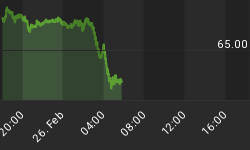The hostile takeover is almost complete. On Sunday Greece agreed not just to Germany's original demands, but to even more:
(Bloomberg) - The conditions that Tsipras swallowed comprised a laundry list of unfinished business from Greece's two previous bailouts and a new demand for the government to transfer 50 billion euros of state assets to a holding company that will seek to either sell or generate cash from them.
Tsipras hailed the fact the fund would be based in Greece, not Luxembourg as had been suggested. He also latched onto the prospect of debt relief, albeit distant, after creditors rejected his pleas for a cut in the face value of Greek debt of about 310 billion euros. Merkel said interest-payment grace periods and longer maturities will "be discussed once there is a successful evaluation of the new Greek program."
The terms are significantly tougher than those Tsipras labeled "blackmail" when he persuaded Greek voters to reject them in a referendum a week ago. In addition to requirements on pensions and sales taxes, measures that Tsipras accepted last week, the leaders demanded that creditor representatives return to Athens with full access to ministers and a veto over relevant legislation, intrusions that he has long rejected.
To put these asset sales into perspective, Greece's GDP is only about 237 billion euros, having fallen by nearly a third since the last financial crisis. So €50 billion is about 20% of the entire economy. Meanwhile, Greece's debt will continue to increase from its already unmanageable levels, with only the promise of some maturity extensions or slightly lower rates as a partial offset.

But of course this isn't yet a done deal. Tsipras now has to get his legislature to accept spending cuts and asset sales that his party ran against in both the general election that swept it to power and the previous Sunday's referendum in which 60% of voters opposed even a weaker version of the new austerity. Not surprisingly:
Tsipras Faces Mutiny After Capitulating to Demands
(Bloomberg) - Prime Minister Alexis Tsipras returned to face a mutiny within his coalition after he surrendered to European demands for action to qualify for up to 86 billion euros ($95 billion) of aid Greece needs to stay in the euro.
Tsipras arrived back in Athens to confront lawmakers from his Syriza-led bloc who rebelled this weekend when he sought their endorsement for spending cuts, pensions savings and tax increases. He met with his closest aides to chart the path ahead, as the Greek parliament faced a Wednesday deadline to pass into law key creditor demands including a value-added tax overhaul, broadening the tax base to increase revenue and curbing pension costs.
With the threat of defections rippling through his bloc, Tsipras will "have to change his administration and clear out hardliners and radicals from his party," as well as rely on opposition support to pass the necessary measures, said Eurasia Group analysts Mujtaba Rahman and Federico Santi. "But it is a tough call to determine how Tsipras will go about doing this."
Attention is shifting to the parliamentary hurdles ahead before Greece can even begin negotiations with creditors to access a third international bailout in five years. The euro fell as the scale of the challenges sank in and the European Central Bank held off from expanding its aid for Greek lenders.
"There's a vista of division within the party, part of Syriza officials and lawmakers do not accept the tactics followed by our prime minister," Yanis Balafas, a Syriza lawmaker close to Tsipras, said in an interview. "What matters now is that the worst-case scenario of a default has been averted."
The Greek parliament has until Wednesday to pass into law key creditor demands.
Greece's choices had long ago dwindled to just two: a chaotic exit from the eurozone in which banks would close, capital controls would be endemic and euro-denominated electronic accounts would be converted to less-valuable drachmas, or an "internal devaluation" in which government spending cuts and widespread layoffs lowered Greek labor costs to the point where the country could use that advantage to compete against more efficient Germany. Either looked like a disaster, but one or the other had to happen. And after sampling the first option and finding it terrifying, Greece has gone with the devil it already knows.
Unless of course the country rebels, recalls its leaders and starts over.
















